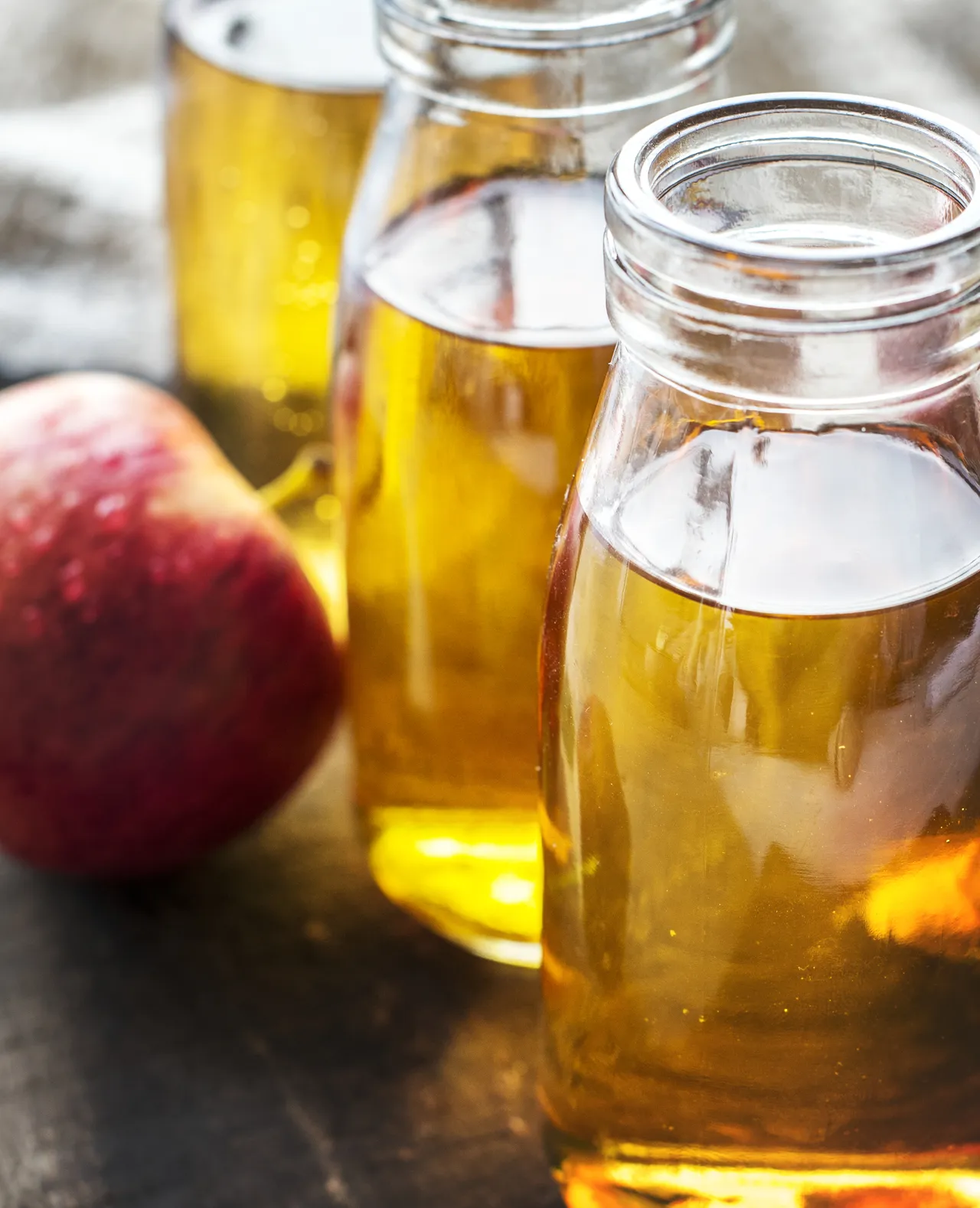 Tuesday, June 24, 2025
Tuesday, June 24, 2025Apple Cider Vinegar Water Diet: What's behind it – and what does it offer athletes?
The so-called apple cider vinegar-water diet is currently a popular trend in fitness and health circles. This involves adding 1–2 tablespoons of apple cider vinegar to a large glass of water, typically consumed in the morning or before meals. The goal is to achieve various metabolic and health effects.
But what is actually behind it – and can athletes benefit from it? Here, you will find out, based on current scientific findings.

Possible Effects for Athletes
| Possible Effect | Explanation |
|---|---|
| Support of fat metabolism | Acetic acid activates enzymes like AMPK, which can boost fat burning. Thus, the apple cider vinegar-water regimen could help with weight management and definition (Kondo et al., 2009; Yamashita et al., 2014). |
| Better glycogen storage | Studies show: Acetic acid can improve the replenishment of muscle glycogen after intense sessions (Fushimi et al., 2001). |
| Regulation of blood sugar levels | Apple cider vinegar can flatten blood sugar spikes after carbohydrate-rich meals – this helps prevent energy crashes during training (Johnston et al., 2005). |
| Appetite-suppressing effect | Acetic acid has a satiating effect and could curb cravings – helpful during dieting phases (Darzi et al., 2013). |
| Electrolyte balance & cramp relief | Some athletes report that apple cider vinegar can alleviate muscle cramps. There are initial positive indications, but more studies are needed. |

Scientific Background
- Kondo et al. (2009), Yamashita et al. (2014): Vinegar intake promotes fat breakdown and improves body composition in overweight individuals.
- Fushimi et al. (2001): Acetic acid increases glycogen storage after intense exertion.
- Johnston et al. (2005): Apple cider vinegar slows glucose absorption, leading to a more stable blood sugar profile.
- Darzi et al. (2013): Vinegar reduces energy intake through increased satiety.
- PMC9219283 (2021): Indications of improved endurance and reduced muscle fatigue during physical exertion.

Risks and Application Guidelines
- Dilution is mandatory: Never drink it neat – always mix 1–2 tbsp in a large glass of water to protect teeth and mucous membranes.
- Consume tooth-friendly: Best consumed with a straw and mouth rinsed with water afterwards.
- Avoid if stomach issues: Those prone to heartburn or stomach irritation should be cautious or consult a doctor.

Conclusion
The apple cider vinegar-water diet is not a miracle cure, but it offers some intriguing potential effects for athletes: It can stimulate fat metabolism, support glycogen storage post-training, and help maintain stable blood sugar levels. The appetite-suppressing effect can also be beneficial during dieting phases.
However, the scientific evidence for sport-specific performance enhancements is still limited. Those willing to try the regimen should pay attention to the correct dosage and application – well diluted, regular, and well-tolerated.
Properly integrated, apple cider vinegar-water can be a small but meaningful addition to a sport-appropriate diet and a well-thought-out training plan.


